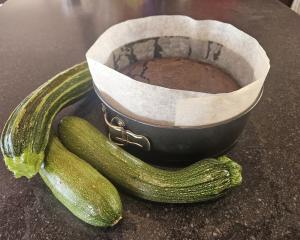

However, during the decade before menopause, women can notice changes in hormones. This is called perimenopause.
Perimenopause is most likely to start in your 40s but some women notice it as early as their late 30s and symptoms can last two to 12 years. It is estimated that 20%-25% of women go through dramatic changes, but typical symptoms may include:
- New-onset heavy and/or longer periods.
- Shorter menstrual cycles than before.
- Sore, swollen or lumpy breasts.
- Disturbed sleep.
- Increased menstrual cramps.
- Onset of night sweats, premenstrually, in particular.
- New or increased migraine headaches.
- New or increased premenstrual mood swings.
- Weight gain without changes in exercise or eating.
Oestrogen is one of the two main sex hormones women have (the other is progesterone) and is responsible for, among other things, female reproduction and menstrual cycles.
The symptoms of perimenopause are due to the fluctuating oestrogen levels - periods of high oestrogen can result in breast pain, heavy periods, fluid retention, irritability and weight gain. This can be followed by periods of declining oestrogen and symptoms such as depression, night sweats, heart palpitations and hot flushes.
It is worthwhile reducing alcohol and caffeine to see if it alleviates your symptoms.
Being able to metabolise oestrogen efficiently requires healthy liver function. Avoiding cow’s milk products (A1 casein) makes periods lighter and it could be because doing so reduces mast cell activation, which has recently been identified as a cause of heavy periods.
Butter and goat’s cheese are exempt as they do not contain the casein protein.
At the same time that oestrogen is rising and falling, progesterone is declining. Progesterone is a very beneficial calming hormone, which buffers the effects of stress; it also promotes sleep, protects against heart disease and boosts thyroid hormone production, helping to regulate metabolism.
Vitex agnus-castus is a wonderful herb, which is indirectly progestogenic and promotes ovulation, so naturopaths will often suggest this for PMS and perimenopause.
Alternatively, you may be prescribed bioidentical progesterone capsules through your GP. Many women make insufficient amounts of progesterone from their adrenal glands throughout their reproductive years due to chronic stress, so learning to slow down and make some positive changes is beneficial.

WHERE HAS MY ZEN GONE?
Some positive changes to support the nervous system and hormonal health long term include:
Practising gratitude
While waiting at traffic lights, you could think of the things around you that you are grateful for.
Eat well
We are calmer when we have eaten nourishing, real food. This needs to include good fats, protein and complex carbohydrates as well as foods offering zinc and iodine.
Reduce expectations of yourself
Ask for help and delegate where possible.
Exercise
Restorative yoga is particularly beneficial for those with adrenal and thyroid depletion.
Relaxation
Taking a regular bath with Epsom salts added for muscle relaxation, and try reading at night to help you sleep or take 20 long, slow, deep breaths each night when you get into bed.
Watch what you drink
Cut out or limit coffee and avoid all other caffeine sources such as fizzy drinks and try to limit alcohol to special occasions as it prevents you from going into the restorative, deep REM sleep.
Limit screen time
Avoid bright lights and screens for one to two hours before going to bed.
The good stuff
Try a herbal medicine such as withania, rhodiola and ginseng and nutrients such as magnesium, taurine and B vitamins.
• Dee Copland is a Dunedin naturopath and nutritionist. The advice contained in this column is not intended to be a substitute for direct, personalised advice from a health professional.












